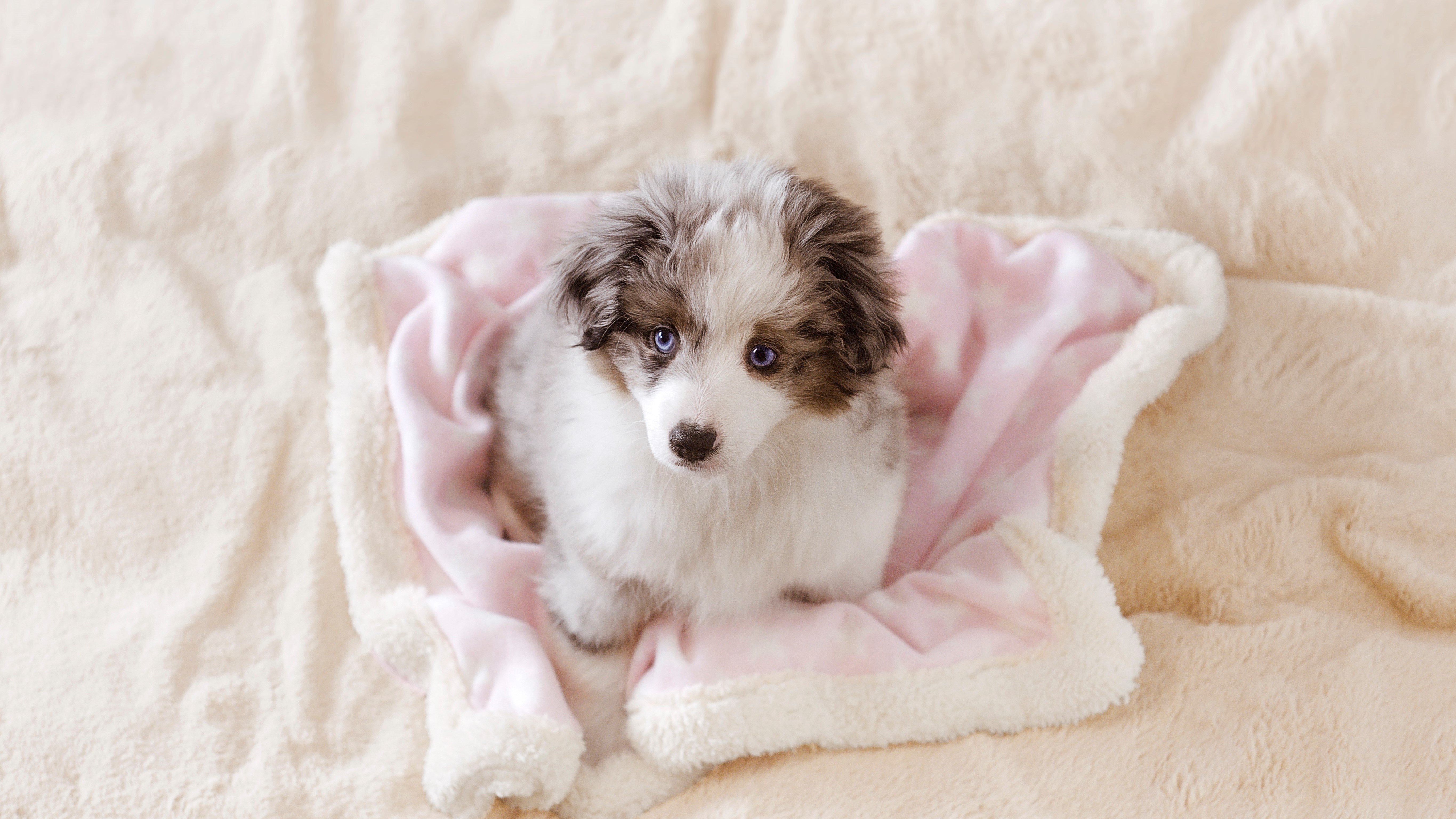
Teaching Your Puppy To Lie Down
Basic training is important for all pups, and ‘lie down’ is a common one to get you started
Help your puppy learn that when you say “Down”, you want them to do just that! With a little patience and lots of treats and praise, you should soon be able to train your pup to lie down when you ask.
Difficulty: Easy
Equipment: Treats and a calm environment
Time: 5-10 minutes at a time, a handful of times a day
Read more of our top dog training tips here.
More tips about teaching your puppy to lie down
‘Down’ is a common and simple cue that you can teach your dog. It’s useful for helping them calm down in the evening, or in other situations where you need them to relax. It’s also the first stage in more complicated tricks, like ‘roll over’!
Just like with all training, short, frequent sessions are better. Puppies especially have very short attention spans, and trying to introduce new training for more than 5-10 minutes at a time will just result in frustration for both of you!
Although this command is often designed for use when dogs are overexcited and need to calm down, the cue needs to be taught in a relaxed environment. Once they are responding well in a quiet environment, then it’s time to increase the difficulty, and begin saying ‘Down’ in more challenging environments.
For successful training, it’s also important to get your dog engaged with you. Usually, a fistful of yummy treats is enough to get that covered! Keep treat portions small, but big enough that your pup feels like they are worth the effort.
- Start by getting their attention with your treats, then hold the treat just above your pups nose. If you’ve got the right treat and the right environment, hopefully your dog’s attention will be fixed on the treat in your hand.
- Slowly move your hand towards the ground. As the treat moves downwards, many dogs will automatically lie down as they follow the treat – great!
- The second your dog’s elbows and hocks hit the floor, give positive reinforcement with a verbal congratulations such as ‘good dog!’ and by giving them the treat.
- If your puppy isn’t lying down, then you need to make it easier. If this is the case, then you can reward for less than a full ‘down’ to reduce any frustration your puppy may feel. Break it down to what the puppy is offering, so bent elbows and dropped head means a reward. Gradually ask for more each time, until you get a full down.
- Once your dog is getting it, keep repeating! Repetition is key to learning. Soon, your dog should lie down whenever you hold a treat in this way. You may want to place the treat on the floor as the reward when they do lie down, so your puppy can hold the position while they get their treat.
- Now it’s time to add in the cue! Most people use ‘Down’, but you can use whatever you like, so long as everyone in the family knows what the cue word or signal is. Say your dog’s name followed by the cue word as you hold the treat near them and they perform the movement. It’s important to only say “Down” as they are making the movement at first, so they associate the word with the correct action. Gradually, phase out the hand movement and just leave the cue word.
While ‘Down’ is often seen as a basic command, some puppies don’t make anything easy! This can be frustrating. If you find yourself getting frustrated with your dog, always stop the training session.
Puppies are very sensitive and will quickly pick up on any negative messages. This includes telling them off – don’t forget your pup is still learning and doesn’t know what you want them to do. This means they don’t know if they do something wrong. Being told off will be confusing and upsetting for them, and won’t help with getting them to enjoy training in the future!
Read more about positive reinforcement
Some tips include:
- If your dog doesn't seem to get it at all, you can try capturing the behaviour. This means saying 'Down', whenever they lie down naturally and rewarding them. This can be tricky as you'll have to carry food with you but can help dogs who are struggling to understand what you want them to do.
- If your dog is too excited to concentrate, try doing the training after exercise or after a meal when they might be a little more tired or relaxed.
Join our VIP puppy club
Join our VIP club to receive advice, rewards, savings and a host of offers including £30 off Complete Care Junior or Complete Care. Plus, every swipe of your VIP card helps animals in need near you.

